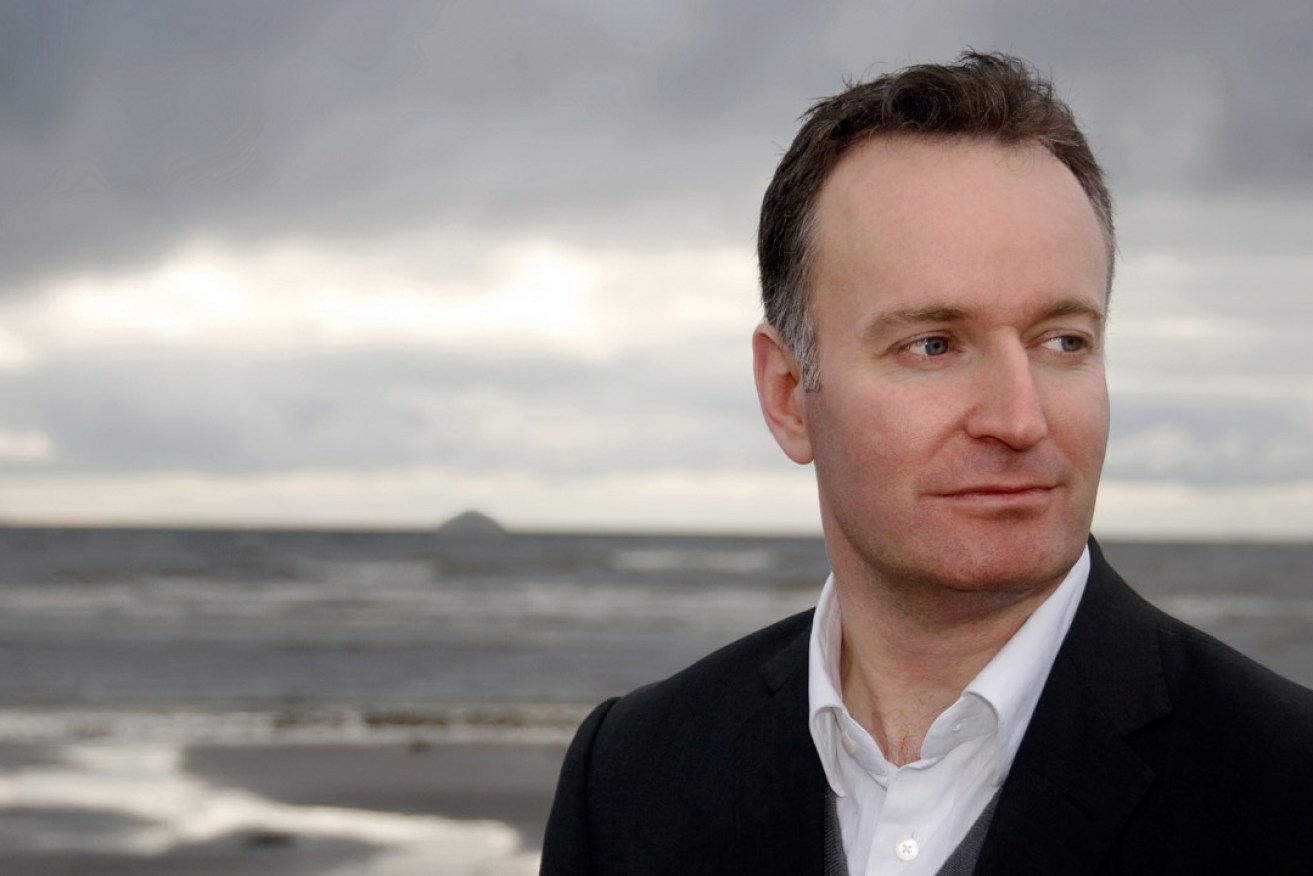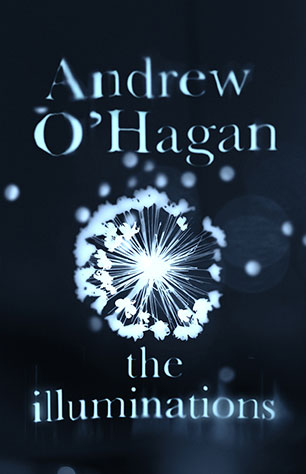Writers’ Week book extract: The Illuminations
Memory, war and love are central themes of this Man Booker Prize-longlisted novel by Andrew O’Hagan, who will be a guest at this month’s Adelaide Writers’ Week.

Author Andrew O'Hagan. Photo: Broaddaylight
Central to story is Anne Quirk, an elderly woman who in her youth was a pioneer of documentary photography, but whose rapidly disappearing memory threatens to swallow her mysterious past.
The extract below comes from “Video Games”, in chapter one of the book, where Anne, her daughter Alice and neighbour Maureen are discussing Anne’s adored grandson Luke, a captain on a tour of duty in Afghanistan, who will ultimately prove key to unlocking her secrets.
Anne was irritated. She drank her tea. An old sentence ran in her mind whenever Alice was giving one of her speeches. ‘She knows the price of everything and the value of nothing.’ Luke was like her and not dull or small like his mother. He was someone who loved pictures, shells, and all sorts of things. He loved to fly away. She could recall seeing the start of an artistic temperament in the boy and being delighted. It had spelled out a closeness between them. He once dropped in from school to tell her that Lysander was not only the name of a fighter plane but a Spartan warrior, and it remained with her, the way he smiled, the way he ran into the living room with his big open eyes.
‘He’s a cut above the usual kid, my grandson,’ she said.
‘He might be a cut above,’ Alice said, ‘but you should see the state of that flat of his.’
Alice didn’t go into it, didn’t say that when she’d opened the door to her son’s flat, she suddenly felt safe. His mail was piled in the hall and she gathered it all up. She put it on the kitchen top next to some empty beer bottles and a book called Kim. She went round dusting and she loved loading the dishwasher and making the bed. She boiled the kettle and she enjoyed choosing a cup and placing it on a saucer. She loved cleaning an ashtray and taking it out onto the narrow balcony and smoking a cigarette, looking over to the glass roof of the railway station. Luke was in a desert at that very moment and he was probably shooting a rifle or riding in a tank and she was here, waiting. It wasn’t the life she wanted for him. And she was sure that was one of the reasons he wanted it for himself.
‘Such a nice flat, but what a mess.’ This was what she chose to say to the women. ‘It’s the same every time I go up. Not just a mess, but a man-mess. I can understand socks and all that. But it’s the bottles of beer and the cables – oh my God, the cables.’
When she walked around the flat that day, Alice had worried that maybe her son didn’t really know how to live. He was one of those people whose sitting room is full of travel stuff and suitcases, duty-free bags, washing kits, as if he didn’t really live anywhere and just wanted to be in transit. Those people are sort of homeless, she thought. They don’t know how to belong or how to be at peace with themselves. They live out of bags; they eat on the run. And there’s no dignity or order in that kind of life. To not know where the clean towels are kept or that you have cutlery in the drawer; it’s no good, she thought, it’s a half-life.
‘What are the cables for?’ Maureen asked.
‘Video games,’ Alice said. ‘Just everywhere. Those handsets, you know. Cables like you wouldn’t believe and all these DVDs out of their cases. I think he just gets into Glasgow and goes to the flat and smokes that stuff. The ashtrays are full of it. Hash. And he plays those games, the ones that have soldiers on the cover.’
‘Leave Luke alone,’ Anne said suddenly. ‘He’s old enough to look after himself.’
‘He’s twenty-nine.’
‘That’s old enough.’
When Anne looked up, ready to scrutinise her daughter, she noticed Alice had some kind of light stuff under her eyes. It’s one of those make-up pens that are supposed to take years off your age, thought Anne. One of those concealers you can buy. She’d seen them in magazines and thought it was silly to touch up your pictures.
The younger women made allowances. Maureen inclined her head the way the interviewers did on The One Show and created a little moment between her and Alice. ‘It must be frightening for you,’ she said, ‘knowing Luke’s out in that horrible place.’
‘You get used to it,’ Alice said. ‘I went through it all with his father. You just pray the same thing won’t happen to him.’
‘Did he die, Alice, your man?’
Anne got in quickly. ‘His name was Sean Campbell.’ She put her hands on the table and began smoothing them.
‘That’s right, Mum.’
‘I’m not daft,’ Anne said. ‘I know who Sean is.’
Alice pursed her lips. She felt better for not jumping down her mother’s throat. Then she lowered her voice in the manner of a considered and patient person. ‘My husband Sean was killed in Northern Ireland,’ she said. ‘He was serving with the Western Fusiliers, the same regiment that Luke is with now, and they were on patrol in Belfast, you know. And there was this place, the Divis Flats, where a bomb went off. There was a primary school just there and it was playtime but the kids weren’t out and the bomb went off and it killed Sean.’
‘Holy Mother of God,’ Maureen said.
‘That’s right.’
Anne heard what they were saying but she didn’t want to hear it and thought instead about the cafes she used to go to with Harry. Oh, the lovely places. She also thought about bombers and things from history that existed for her now as evidence of someone she used to be. When the women at the table paused she looked up. ‘Was that 1940?’
‘Sorry, Mum?’ Alice said.
‘The Sean thing.’
‘It was 1987,’ Alice said. ‘Luke was only five.’
‘Then she met somebody else,’ Anne said. She liked to talk about Alice as if she wasn’t there. ‘Another man.’
‘That’s not fair, Mum. I didn’t go out for the house. Not for ten years, I didn’t go out. Luke was at school.’
‘You were living in Glasgow?’ asked Maureen.
‘Glasgow, yes. We lived in Kent Road. It was a wee flat Sean and I bought when we got married.’
‘You got a pension, though,’ Anne said. She was staring at the crumbs on her plate. ‘ Somebody always gets the pension.’
‘I was a widow with a small boy,’ Alice said. ‘A widow. My husband was dead and it was …’
‘Husband.’
‘Yes, Mum. My husband, Sean.’ She turned back to Maureen and was keen to finish the story. ‘I didn’t meet Gordon until Luke was settled at university.’
‘At Strathclyde?’
‘That’s right. Luke went the University of Strathclyde. And the next thing we knew he had applied for army entrance and he passed the exams down south and went to Sandhurst.’
‘When was that, Alice?’
‘It was 2001. I remember he went in September 2001 because it was just after the thing in New York.’
‘It was planes,’ Anne said.
‘That’s right,’ said Maureen. ‘It was on TV.’
‘The Royal Wester Fusiliers,’ Alice continued. ‘You pick the regiment you want during officer training. Sean liked being with the Scots and the Irish, boys from there or the North of England. And so does Luke. I can tell you it’s not what I wanted for my Luke.’
‘The North Pier,’ Anne said.
‘They just ignored her. It was now part of the routine, to assume Anne was now and then speaking to herself.
‘Those planes went over Jane Street,’ Anne said, lost in her own thoughts. ‘That’s where I used to live in New York.’
‘Mum says she lived in New York,’ Alice said. ‘When she was a young woman. Before me.’
‘Jane Street,’ Anne said. ‘I took pictures. I took them for J. Walter Thompson. Colgate.’
‘Everything was before me,’ Alice said. At times she felt that her mother might suffocate her with the past. Yet she went silent, admiring the mix of periods, wondering if her mother’s neighbor had any notion of the places that Anne had been to in her busy life. Sometimes Alice would just be sitting like this and she’d suddenly realise she was in pain, without really knowing where it came from.
Extract from chapter 1 of The Illuminations, by Andrew O’Hagan. Republished with permission.
London-based O’Hagan, who has been twice nominated for the Man Booker Prize, will speak about The Illuminations at an Adelaide Writers’ Week session on February 29 and will join fellow author Paul Yoon for a session titled “War Stories” on March 1. Writers’ Week will run from February 27 until March 3 at the Pioneer Women’s Memorial Garden.





